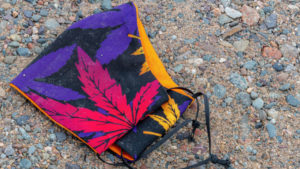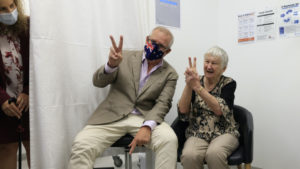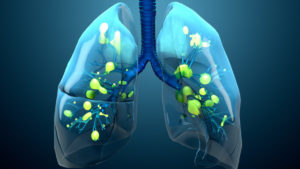Incannex Healthcare’s cannabidiol treatment for respiratory disease looks promising, shares climb

Incannex is moving onto stage two trials of its pre-clinical treatment of respiratory disease. (Pic: Getty)
Medicinal cannabis company Incannex Healthcare (ASX:IHL) says mice testing for its cannabidiol treatment has yielded some strong early results.
The pre-clinical trial of its IHL-675A treatment was to test its effectiveness against symptoms of acute respiratory distress syndrome associated with sepsis (poisoning of the blood).
Incannex (previously Impression Healthcare) will now proceed immediately to stage two of animal testing with in vitro studies up next, followed by a test to determine the optimal fixed dose combination.
Shares in the company rose more than 10 per cent in morning trade to a new 2020 high of 7.6 cents.
Incannex Healthcare (ASX:IHL) Share Price Chart:
Potential COVID-19 application
If stage two trials are successful, IHL said it’s the opinion of consulting firm Camargo Pharmaceutical Services that IHL-675A may be fast-tracked by the US Food & Drug Administration with an “Emergency Use Authorisation resulting from the COVID-19 pandemic”.
To carry out the test, IHL dosed separate groups of mice with an “inflammatory agent to induce sepsis”, alongside escalating doses of cannabidiol (CBD) or hydroxychloroquine (HCQ).
The cannabidiol doses were ramped up in a bell-shape fashion, while the HCQ was increased in a linear fashion.
The aim was to determine their capacity to “inhibit inflammatory cytokine production associated with sepsis”, compared to mice who received either no dose or a lower dose than the maximum amount.
Incannex said that compared to mice who received lower doses, rodents that received increased levels of CBD or HCQ had a reduction in cytokine levels of between 18 and 44 per cent.
“Results exceed internal expectations of 15 per cent maximum reductions, and 80% of results were deemed statistically significant,” IHL said.
The company said there is an unmet need in finding treatments for sepsis associated acute respiratory distress syndrome (SAARDS), and it’s aiming to be the first company to develop a registered pharmacotherapy (drug) treatment.
IHL chief science officer Dr Mark Bleackley said the in vitro study will take around five weeks to complete, and the “second animal study to test optimal fixed dosed combinations will commence thereafter”.
Related Topics
UNLOCK INSIGHTS
Discover the untold stories of emerging ASX stocks.
Daily news and expert analysis, it's free to subscribe.
By proceeding, you confirm you understand that we handle personal information in accordance with our Privacy Policy.








